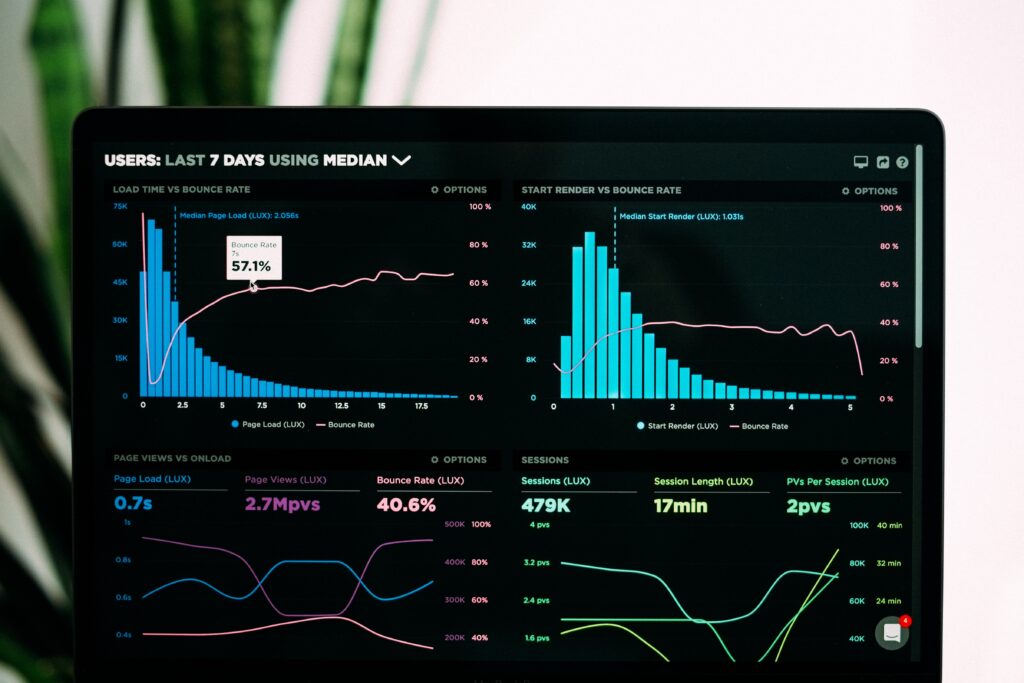In this article, we will discuss the different types of data loggers and explain how they work. You will learn about the various applications of data loggers in different industries and understand the importance of data logging in monitoring and analysis. Additionally, we will explore the key features and functionalities of data loggers, as well as the benefits they offer in terms of data collection and accuracy. By the end of this article, you will have a comprehensive understanding of data loggers and their role in data recording and analysis.
What is a data logger?
Definition and purpose of a data logger
A data logger is a device that is used to record and monitor various types of data over a specific period of time. It is commonly used in industries such as environmental monitoring, industrial processes, laboratories, and transportation, among others. The main purpose of a data logger is to collect accurate and reliable data for analysis, research, and evaluation.
Types of data loggers
There are various types of data loggers available in the market, each designed to measure specific parameters. Some common types of data loggers include temperature loggers, humidity loggers, pressure loggers, voltage loggers, and current loggers. These loggers are equipped with specific sensors and inputs to measure and record the desired data accurately.
Key components of a data logger
Sensors and inputs
The sensors and inputs in a data logger are essential components as they are responsible for measuring and detecting the desired parameters. For example, a temperature logger would have a temperature sensor, and a pressure logger would have a pressure sensor. These sensors convert the physical measurements into electrical signals that can be processed and recorded by the data logger.
Microcontroller or data acquisition system
A microcontroller or data acquisition system is the brain of a data logger. It is responsible for processing and controlling the data acquisition process. The microcontroller receives the electrical signals from the sensors, performs any necessary calculations or adjustments, and stores the data for later retrieval.
Memory or storage
The memory or storage capacity of a data logger is crucial in determining how much data it can store before it needs to be downloaded or transferred. Data loggers typically have built-in memory or storage capacity to store the recorded data. The capacity can range from a few kilobytes to several gigabytes, depending on the model and application.
Power source
Data loggers require a power source to operate continuously and collect data over an extended period. They can be powered by various sources, including batteries, external power supplies, or even solar panels. The power source should be chosen based on the specific requirements of the application, such as the desired monitoring duration and the availability of power sources.

Different types of data loggers
Temperature loggers
Temperature loggers are designed to measure and record temperature variations in the environment or within a specific object or location. They are commonly used in applications such as food storage, HVAC systems, and pharmaceutical storage, where temperature control is critical.
Humidity loggers
Humidity loggers are used to monitor and record humidity levels in various environments. They are often utilized in industries such as agriculture, manufacturing, and food processing, where specific humidity levels are essential for optimal operations and product storage.
Pressure loggers
Pressure loggers are specifically designed to measure and record pressure variations in gases or liquids. They are widely used in applications such as water management, industrial processes, and oil and gas exploration. Pressure loggers help ensure the safety and efficiency of equipment and systems by monitoring pressure levels accurately.
Voltage loggers
Voltage loggers are used to measure and record voltage fluctuations in electrical systems. They are commonly employed in applications such as power distribution, renewable energy systems, and electronic device testing. Voltage loggers provide valuable insights into the performance and stability of electrical systems.
Current loggers
Current loggers are designed to measure and record the flow of electric current in a circuit or system. They are commonly used in applications such as energy monitoring, power quality analysis, and electrical equipment testing. Current loggers provide valuable data for assessing energy consumption and optimizing power usage.
How do data loggers work?
Data collection and sampling
Data loggers collect data by continuously sampling the desired parameters at predefined intervals. The sampling frequency can be adjusted based on the specific requirements of the application. The sensors in the data logger convert the physical measurements into electrical signals, which are then processed by the microcontroller.
Data storage and retrieval
After the data has been processed, the data logger stores it in its memory or storage capacity. The recorded data can be retrieved at a later time for analysis and evaluation. Depending on the data logger’s design, the data can be downloaded directly through a USB or serial connection, or wirelessly transmitted to a central monitoring system.
Communication and data transfer
Some advanced data loggers are equipped with communication capabilities, allowing them to transfer data in real-time or at scheduled intervals. This feature is especially useful in applications that require immediate access to the data or remote monitoring. Data loggers can communicate through various methods, including Wi-Fi, Bluetooth, cellular networks, or Ethernet.

Advantages of using data loggers
Continuous monitoring
One of the significant advantages of using data loggers is their ability to provide continuous monitoring of specific parameters. They can collect data over an extended period without the need for human intervention. Continuous monitoring ensures that no critical data points are missed, providing a comprehensive understanding of the system being monitored.
Real-time data
Data loggers equipped with communication capabilities can provide real-time data, allowing for immediate analysis and decision-making. Real-time data is particularly beneficial in applications that require quick responses to changing conditions or potential risks. It provides valuable insights into system behavior and helps in identifying anomalies or deviations from normal operation.
Cost-effective
Data loggers are a cost-effective solution for monitoring and collecting data compared to traditional methods. They eliminate the need for manual data collection, reducing labor costs and potential human error. Data loggers also offer long-term cost savings by providing accurate data that can be used for preventive maintenance, energy optimization, and process improvements.
Versatility and flexibility
Data loggers can be used in a wide range of applications and environments due to their versatility and flexibility. They are available in various sizes, configurations, and measurement capabilities, allowing for customization based on specific requirements. Data loggers can be easily integrated into existing systems or used as standalone devices, providing flexibility in implementation.
Applications of data loggers
Environmental monitoring
Data loggers are extensively used in environmental monitoring applications to assess and record various parameters such as temperature, humidity, air quality, and water quality. They are employed in fields such as agriculture, forestry, weather monitoring, and ecological research, where accurate and continuous data is crucial for analysis and decision-making.
Industrial processes
In industrial processes, data loggers play a vital role in monitoring and controlling various parameters to ensure efficient and safe operations. They are used in applications such as production monitoring, equipment performance analysis, energy management, and quality control. Data loggers provide valuable data for process optimization, troubleshooting, and regulatory compliance.
Laboratories and research
Data loggers are widely used in laboratories and research facilities to monitor and record data during experiments and studies. They help researchers accurately measure and collect data, ensuring reliable and reproducible results. Data loggers are used in various fields such as biology, chemistry, physics, and environmental science.
Transportation and logistics
Data loggers are used in transportation and logistics to monitor and record various parameters during the shipping and storage of goods. They help ensure that the conditions such as temperature, humidity, and vibration are maintained within specified ranges to preserve the quality and integrity of the products. Data loggers provide evidence of compliance with regulations and standards in industries such as pharmaceuticals, food, and perishable goods.

Factors to consider when selecting a data logger
Measurement parameters
The first consideration when selecting a data logger is the specific parameters that need to be measured and monitored. Different data loggers are equipped with different sensors and inputs to measure specific parameters. It is essential to choose a data logger that can accurately measure the desired parameters for the intended application.
Accuracy and resolution
The accuracy and resolution of a data logger are critical in ensuring reliable and precise measurements. The accuracy represents how close the measured value is to the true value, while the resolution determines the smallest increment that can be detected by the data logger. It is important to select a data logger with high accuracy and resolution to ensure the collected data is reliable and meaningful.
Memory capacity
The memory capacity of a data logger determines how much data it can store before it needs to be downloaded or transferred. The capacity should be chosen based on the specific requirements of the application, such as the monitoring duration and the frequency of data collection. A larger memory capacity allows for extended monitoring periods without the need for frequent data retrievals.
Battery life
The battery life of a data logger is crucial, especially in applications where continuous monitoring is required for an extended period. It is essential to select a data logger with a sufficient battery life to ensure uninterrupted data collection. The battery life should be considered along with the desired sampling frequency and the power consumption of the data logger.
Software compatibility
The software compatibility of a data logger is an important consideration for data retrieval, analysis, and visualization. The data logger should be compatible with the software platform used by the user or the organization. Compatibility ensures smooth data transfer, easy data analysis, and integration with existing systems or databases.
Best practices for using data loggers
Calibration and maintenance
Regular calibration and maintenance are essential for ensuring the accuracy and reliability of data loggers. Calibration involves comparing the measurements of the data logger with a known standard to check its accuracy. Regular maintenance includes checking the sensors, cleaning the device, and updating the firmware. Proper calibration and maintenance help in minimizing errors and ensuring the accurate measurement of data.
Data security and backup
Data security and backup are crucial aspects of using data loggers, especially for critical applications. It is essential to implement proper data security measures to prevent unauthorized access or tampering of the recorded data. Regular backups should be performed to prevent data loss in case of device failure or other unforeseen circumstances.
Proper installation and placement
The proper installation and placement of data loggers are vital to ensure accurate measurements. Data loggers should be installed in locations that are representative of the desired measurements and free from any external influences that may affect the accuracy of the data. Proper positioning and securing of the data loggers help in minimizing measurement errors and ensuring reliable data collection.
Limitations and challenges of data loggers
Limited real-time monitoring
One limitation of data loggers is their limited real-time monitoring capabilities. While some advanced data loggers can provide real-time data through communication interfaces, most data loggers record and store data for later retrieval. Real-time monitoring may be necessary in applications that require immediate response or control based on the collected data.
Data compatibility issues
Data loggers from different manufacturers or models may have different data formats or file types, which can pose compatibility issues when analyzing or integrating the collected data. It is important to ensure data compatibility or use compatible software platforms to prevent data compatibility issues. Data loggers with open data formats or standardized communication protocols can help mitigate these challenges.
Sensor limitations
The accuracy and precision of data loggers heavily rely on the quality and capabilities of the sensors used. Some sensors may have limitations in terms of measurement range, sensitivity, or environmental conditions. It is important to select data loggers with high-quality sensors that are suitable for the intended application to ensure accurate and reliable data collection.
Conclusion
In conclusion, data loggers are versatile devices that play a crucial role in various industries and applications. They enable continuous monitoring, provide real-time data, and offer cost-effective solutions for data collection and analysis. By understanding the types and components of data loggers, as well as their working principles and advantages, you can make informed decisions when selecting and using data loggers for your specific needs. Whether it’s environmental monitoring, industrial processes, laboratories, or transportation and logistics, the use of data loggers has become indispensable in achieving accurate and reliable data for analysis, research, and decision-making.

